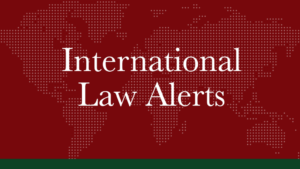
In February 2021, representatives of the 193 Member States of the UN, businesses leaders, civil society and environmentalists from around the world will come together virtually for the fifth session of the United Nations Environment Assembly (UNEA), the world’s highest environmental decision-making body.
The African Development Bank, the UN Environment Programme (UNEP) and GRID-Arendal have released the inaugural Sanitation and Wastewater Atlas of Africa, a tool to benchmark and propel Africa’s progress towards Sustainable Development Goal targets on safe sanitation and wastewater management
Latin America and the Caribbean today adopted regional plan containing 10 actions to promote the recovery of terrestrial, marine and coastal ecosystems in the next decade.
Food System Impacts on Biodiversity Loss, the new Chatham House report, supported by the UN Environment Programme (UNEP) and Compassion in World Farming, describes three actions needed for food system transformation in support of biodiversity, and sets out recommendations to embed food system reform in high level political events over the coming UN ‘Super Year’ for Nature.
The past six years have been the warmest on record since 1880, with 2016, 2019 and 2020 being the top three, according to a World Meteorological Organization (WMO) press release on 15 January. The year 2020 was 1.2°C above pre-industrial era (1880) temperatures.
WMO predicts a 20 per cent probability that temperatures will temporarily exceed 1.5°C as early as 2024.
UN Member States will gather virtually this February 22-23 for the Fifth Session of the UN Environment Assembly (UNEA-5). This is the world’s top environmental decision-making body attended by government leaders, businesses, civil society and environmental activists.
Many ecosystems around the world, from forests to coral reefs, are in decline, victims of pollution, climate change and resource extraction.
But faith-based organizations are increasingly stepping in to help repair these natural spaces. In many cases, religious leaders have become environmental influencers, championing nature-based solutions that experts say are crucial to saving the ecosystems that underpin human society.
Pakistan announced today that it will host World Environment Day 2021 in partnership with the UN Environment Programme (UNEP). This year’s observance of World Environment Day will be on the theme of ‘ecosystem restoration’ and focus on resetting our relation with nature. It will also mark the formal launch of the UN Decade on Ecosystem Restoration 2021 – 2030.
A stronger focus on the promotion of circular economy, the protection of biodiversity and the fight against pollution lie at the heart of a new agreement signed on 26 February 2021 for enhanced cooperation between the European Commission (EC) and the UN Environment Programme (UNEP).
-Today, the UNFCCC released its initial Nationally Determined Contribution Synthesis Report, tallying the greenhouse gas emission reduction commitments of countries that had submitted their plans as of December 2020.
The results are alarming: countries’ mitigation targets are nowhere near where they need to be to avert climate catastrophe.
Researchers have compared the self-reported emissions inventories published by 48 major US cities to estimates from a state-of-the-art emissions information system. Researchers found large differences and a systematic under-reporting of urban emissions by cities.
Scientists found that the sustainability of plant-based bioplastics depends largely on the country of origin, its trade relationships and the raw material processed.
New research by an environmental scientist reveals that deforestation in the U.S. does not always cause planetary warming, as is commonly assumed; instead, in some places, it actually cools the planet.
Hoping to end flooding in Cagayan and Isabela provinces, the Build Back Better (BBB) Task Force formally launched on Tuesday the Cagayan River Rehabilitation Project through ceremonial dredging of sandbars along the Magapit Narrows and bamboo planting along the riverbank in Barangay Bangag in Lal-lo, Cagayan
The Sasmuan Pampanga Coastal Wetland (SPCW) is now a Ramsar Site or Wetland of International Importance.







































































































 on the upper right corner to select a video.
on the upper right corner to select a video.